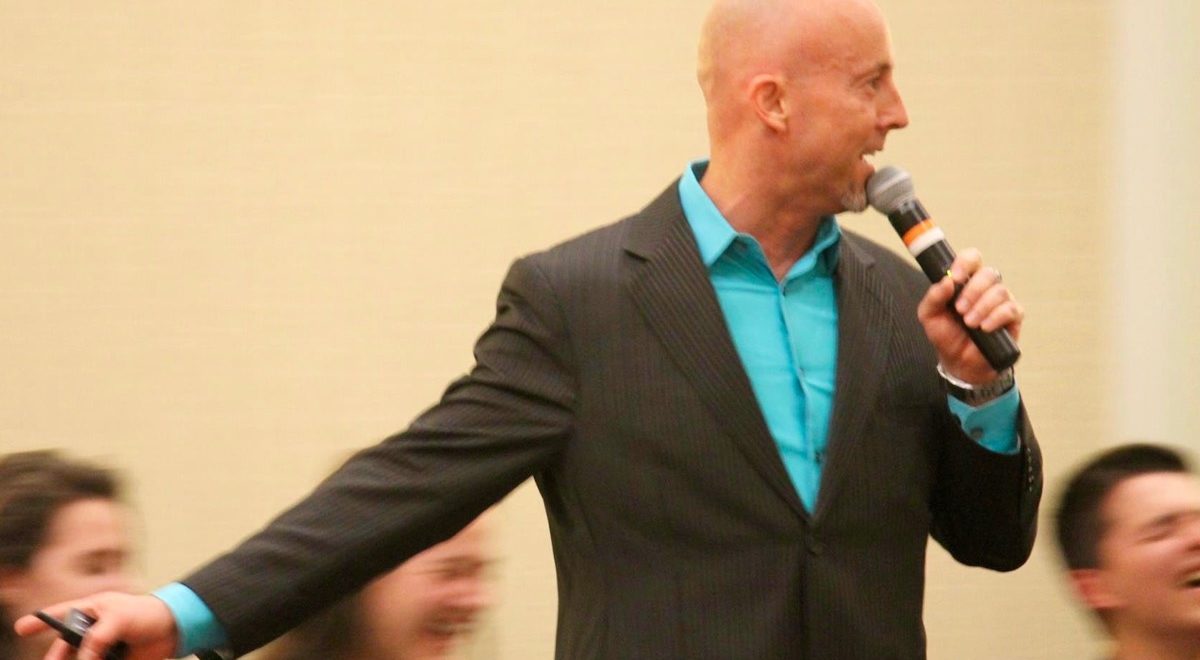Career minded professionals need to deal with stress on a daily basis. You need strategies for coping with anxiety, because you don’t get to “opt-out” or take it easy when your schedule is filled with appointments and looming deadlines.
The road to success is always paved with challenges. Take control of your daily stress management with these simple strategies:
Coping with Anxiety for Busy Professionals
1) DON’T TRY TO BE “FEARLESS”
People say they’d like to become fearless, but that’s NOT a realistic goal.
You’ll never become completely fearless, but you can choose to become more COURAGEOUS.
When you’re passionate about what you do, then you’ll feel the fear, and keep moving forward anyway.
EVERYONE feels stress and anxiety, regardless of appearances. The difference is how people proceed in the face of fear.
Many famous performers battle with intense stage fright. Well known examples are celebrity singer Barbara Streisand, and movie actor Hugh Grant.
Legendary historical figures that struggled with anxiety include household names such as Ghandi, Thomas Jefferson, and Abraham Lincoln.
Successful people find a way to be COURAGEOUS in the face of fear. They feel the fear, and find a way to keep taking action anyway.
2) CREATE A PERSONAL MISSION STATEMENT
If you don’t feel a strong sense of purpose, it’s easy to get stuck in your head and become focused on your own insecurities.
The sure path to greater happiness and anxiety relief is to have a clear sense of how you are SERVING OTHERS.
Here’s a quick but powerful template for creating your own personal MISSION STATEMENT:
I HELP (this type of person)
SOLVE (this type of problem)
SO THAT (this reason)
In business, your mission statement can translate into your “elevator speech.” An elevator speech answers the question, “What do you do?” in 30 seconds or less.
At parties and networking events, people ask you this question all the time. It pays to have a strong answer that leads to the next question, “How do you do that?”
My Mission Statement Example:
I HELP busy professionals
SOLVE self-limiting behaviors and beliefs
SO THAT they maximize their personal potential.
Building a simple Mission Statement is powerful exercise. It solidifies and clarifies your sense of PURPOSE.
A Mission Statement acts as a compass. It helps you navigate through decisions and take action quickly and effectively. If you’re struggling with a decision, simply ask yourself, “Is this congruent with my personal Mission Statement?”
3) HOW BAD COULD IT BE?
Stressed out about something?
Go ahead. Play out the WORST possible outcome in your mind.

How BAD is it? Is it life or death? I mean, could you REALLY die?
The “fight or flight” anxiety response inherited from our ancestors is meant to keep you out of situations that could actually KILL you. Cavemen sometimes needed to flee from tigers and bears, correct?
Unless you could actually die from your target concern, you may be doing a mental distortion called “catastrophising.” Allowing your mind to spin a situation into something that is far worse than it actually is.
Firstly, allow your mind to go there. You’re going to do it anyway!
Now that you’ve imagined the WORST case scenario, are there any steps you could take that would help you to become more prepared? What could you do that would allow you to move into this situation in the most courageous and empowered way?
Preparing for the worst is a useful skill. It shows you care. It helps you formulate alternative plans for action.
Future pacing negative scenarios helps you to PLAN, and get PREPARED.
Prepare for the worst, but hope for the best.
4) WHAT’S THE SILVER LINING?
OK, you’ve imagined the worst case scenario, but have you given any thought to the BEST case scenario? You need to do that as well…
This is a NEW habit that’s going to take some conscious effort on your part, because it’s not natural for you, YET…
Give EQUAL TIME to positive outcomes. You’ve already imagined the WORST possible outcomes. Now, take time to imagine the BEST possible scenarios. What’s the silver lining for each challenging situation?
If the universe was conspiring to give you an outcome that exceeded your wildest expectations, what might that be?
Future pacing positive scenarios helps you get EXCITED. Creating anticipation about the future PROPELS you forward to meet the challenge.
While, STRESS can be a great motivator, it wears you out physically. In the long run, coping with anxiety means you’ll have to develop new strategies of self motivation.
With a little effort, you’ll learn to motivate yourself by becoming EXCITED about new challenges because they contain OPPORTUNITIES.
Create ANTICIPATION, and look for the potential hidden benefits behind every problem.
5) ASK YOURSELF EMPOWERING QUESTIONS
Incredible power is generated when you ask yourself great QUESTIONS:
- What’s the best possible action I can take right NOW?
- Who am I meant to SERVE?
- What types of SOLUTIONS can I provide?
- What’s the potential OPPORTUNITY here?
- What’s the HIDDEN BENEFIT behind this challenge?
6) REFRAME ANXIETY AS AN OPPORTUNITY
The emotions of ANXIETY and EXCITEMENT are closely related.
Either way, you’re in a high state of arousal and mental alertness, coupled with a rapid heartbeat.
So, what’s the REAL difference between anxiety and excitement?
How you CHOOSE to view that feeling.
Whenever you feel nervous, instantly tell yourself, “I am EXCITED.”
Nobody likes being nervous, but EXCITEMENT is perceived as a pleasurable OPPORTUNITY.
Feeling nervous? Don’t try to calm down, get EXCITED. Here’s how…
7) ENAGE YOUR PHYSIOLOGY
That “fight or flight” response is congruent with movement (i.e. “flight”), so get MOVING.
Engage your physiology. Do a fist pump, jump up and down, and tell yourself, “I am excited!”
You’ll feel a change in your state in a matter of seconds, because your physiology is directly linked with your emotions via the mind-body connection.

Move around and get the blood pumping. You’ll diffuse the stress hormones, and start producing the “feel-good” hormones.
Most of us spend too many hours sitting in chair looking at a computer or smartphone. Even if you don’t particularly care about training at a gym, you can still find brief moments to incorporate more physical movement into your daily routine.
Coping with Anxiety – Take Action!
I hope you’ve enjoyed these tips for coping with anxiety. It’s important that you take action now on this information. Any small action you take stimulates new neural pathways in your brain, and gives you a sense that you are consciously taking control of the situation.
Recommendation: Pick ONE one of these ideas, and think of different ways you can apply it throughout your workday. Put a note on your desktop to jar your memory. Take some small action right now before you leave this page!
Next Article: Hypnotic Induction Demonstration


Great tips!